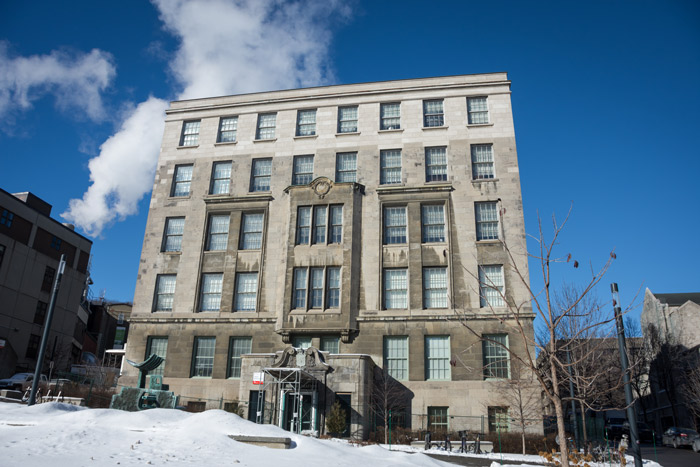On March 22, the McGill Senate held its monthly meeting and discussed the sale of lecture materials not produced by professors, the Annual Report on Enrolment and Strategic Enrolment Management, and the Budget Plan for Fiscal Year (FY) 2017-2018.
Question Regarding Sale of Lecture Materials
Before the meeting, Pharmacology and Therapeutics Professors Terry Hébert and Dan Bernard put forth a question regarding the legality of lecture materials sold and produced by outside companies including Prep 101 and SOS Tutoring. In the document, Vice-Principal (Research and Innovation) Rosie Goldstein and Provost and Vice-Principal (Academic) Christopher Manfredi stated that professors are responsible for enforcing intellectual property rights on material that they produce.
Pharmacology and Therapeutics Associate Professor Edith Zorychta said that due to costs and access to Teaching Assistants (TAs) and tutors, companies like Prep 101 are doing a disservice to students due to their high cost. For five hours, the cost of a Prep 101 tutorial is $112.75, whereas the cost of McGill Tutorial Services is $75, and the cost of working with a TA in office hours and tutorials is free, according to the Prep 101 and McGill Tutorial Service websites.
“I think it’s becoming a significant problem,” Zorychta said. “There’s a certain level of dishonesty, it’s unfair to our students with [the high cost of external services]. Also, [professors] wonder why some of these outlets are allowed to put their ads on bulletin boards.”
Manfredi said that he is unsure of affiliation between Prep 101 and the university.
“I am vaguely familiar with Prep 101, as far as I know there is no formal relationship with the university,” Manfredi said. “This is something that I can look into more closely.”
Annual Report on Enrolment and Strategic Enrolment Management
University Registrar and Executive Director of Enrolment Services Kathleen Massey presented the Annual Report on Enrolment and Strategic Enrolment Management, compiled by Massey and Deputy Provost (Student Life and Learning) Ollivier Dyens.
According to Massey, one issue that McGill University faces is a decline in yield rates, or the percentage of students offered admission who attend McGill. The university’s yield rates have declined from 51.4 per cent to 42.6 per cent in the past 10 years.
Massey said that recently there has been an increase in applications, possibly caused by political changes in the U.S., the UK, and other countries.
“Changes may be from Brexit, American elections, and other international factors,” Massey said. “Applications from the [U.S. have] increased by 21 per cent, and applications from overseas and international high schools about 23 per cent.”
Massey also discussed her goal to increase the diversity of applicants, increase the amount of students from French CEGEPs, and keep the percentage of international students between 25 and 30 per cent.
Budget Plan FY 2017-2018
Manfredi presented the second version of the Budget Plan FY 2017-2018 to Senate. According to Manfredi, there were no major changes from the Budget Plan FY 2016-2017 to the Budget Plan FY 2017-2018.
“We are fortunate at the moment to be operating in a stable budgetary environment,” Manfredi said. “We are able to relax some of the administrative support-style reduction measures.”
Although Manfredi said that McGill has a stable budget, he predicts that the university’s financial deficit will increase.
“I think we all understand that I am anticipating [that] we are going to do more than normal capital expenditure over […] the next decade,” Manfredi said. “We built resilience into our budget to cover that. Nevertheless, we’re projecting a good increase in our cumulative finance deficit.”
The final Budget Plan FY 2017-2018 will be delivered to the Board of Governors on April 27.









